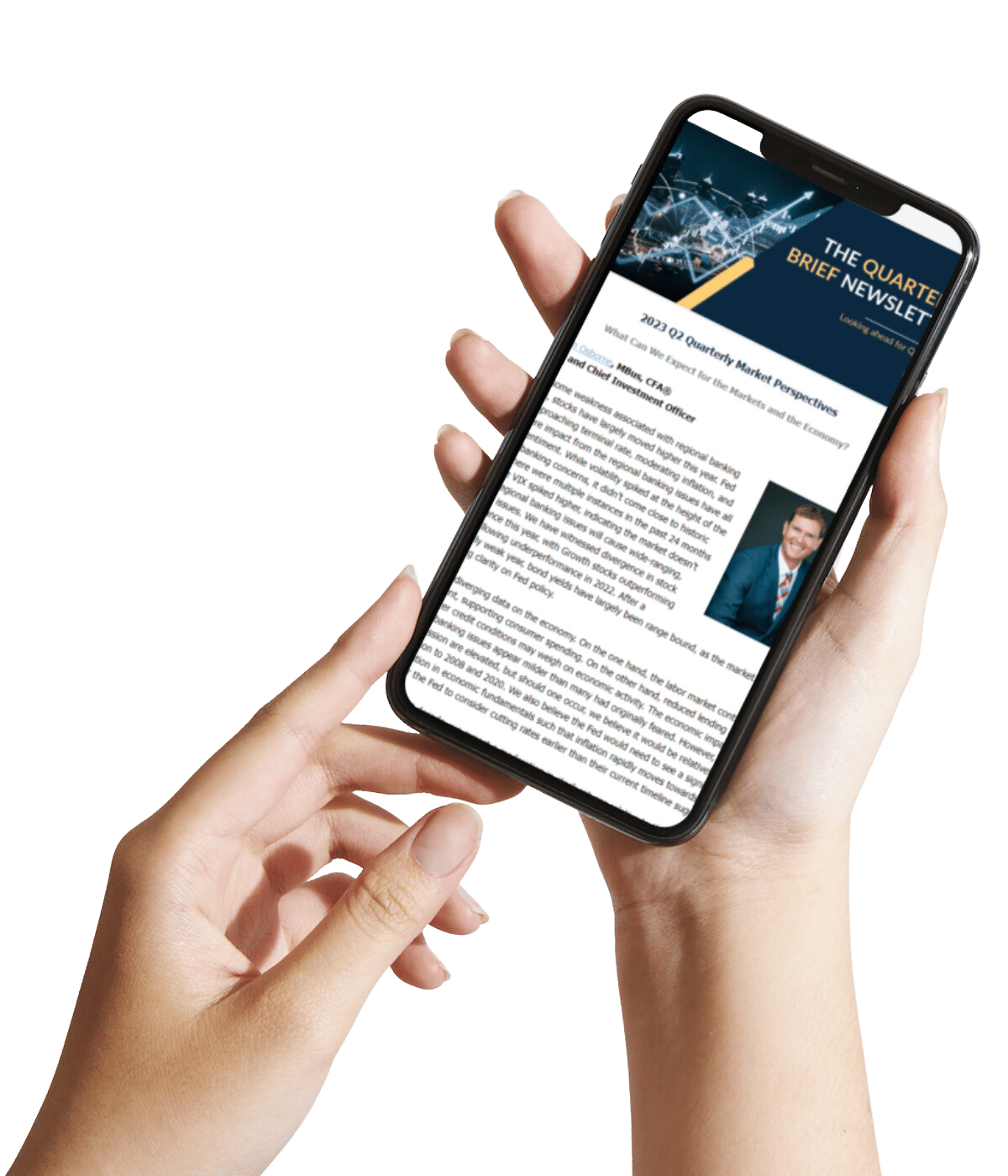The Psychology of Moving into a Retirement Home

Why Is It So Hard to Leave Home?
Deciding to move into a retirement community is one of the most emotionally complex financial decisions a person can make. Our brains often resist even when it makes sense, whether for healthcare, social engagement, or financial stability.
At Mission Wealth, we help individuals and families navigate this transition by understanding the psychological patterns that make it difficult and quantifying the impacts of the transition to ensure it makes financial sense.
Below, we explore three key psychological traps that can cloud judgment—and how to make more informed choices with the help of your financial advisor.
This Article is a 5-minute Read, or You Can Watch the Video Instead
Psychological Trap #1: Endowment Mindset
The endowment mindset explains sentimentality; we place a greater value on things that we own and are familiar with. Your home isn’t just a building; it’s where you raised a family, built memories, created a peaceful haven, and grew as a person. This emotional attachment makes it hard to let go, even when moving might improve your quality of life.
Real-Life Example
In a classic study by Kahneman, Knetsch, and Thaler, students from Cornell University were randomly given a coffee mug that sells for $6 in the campus store. When asked how much they would sell it to other students, they were unwilling to sell it for anything less than $7.12, while those without a mug were only willing to pay $2.87.
Even though the sellers knew that the mug could be purchased from the store at $6 (lower than their $7+ selling price), they resisted selling their mug because their ownership created an inflated sense of value.
This simple study became one of the most widely replicated studies worldwide. If we assign more value to owning a randomly assigned mug that we didn’t have when we started the day, imagine how much value we assign to our cherished homes!
When applied to housing, this mindset means retirees often resist selling their homes, even when upkeep is burdensome, costs are high, and healthcare access and safety are growing concerns.
Planning Tips to Face the Endowment Mindset
- Financial modeling: Talk to your advisor about modeling a transition to a retirement community. As part of our Wealth Management process, we can build a hypothetical scenario that models the finances of making this change. Our system allows us to quantify the net proceeds from selling your home, the monthly and annual costs of the community you are considering, and any required healthcare costs you may have. We can even compare this to a hypothetical scenario where you stay in your current home but pay out of pocket for specialist healthcare providers to come to you.
- Reframe the move: Instead of focusing on what you’re losing, focus on what you’re gaining: less maintenance, more convenience, built-in healthcare, and a vibrant social environment.
- Consider a short-term stay: Many retirement communities offer trial visits. Experiencing life in a new setting can reduce the feeling of loss by showcasing what’s possible before you fully commit and/or sell your home.
Psychological Trap #2: Representativeness Shortcut
Imagine you meet someone named Steve—he’s quiet, detail-oriented, and introverted. If you had to guess, is he more likely to be a librarian or a truck driver? Most people say librarian because he fits the stereotype. Still, in reality, there are far more truck drivers than librarians, making it much more likely that Steve is a truck driver (fun fact: estimates by the Trucking Association put the number of U.S. drivers around 3.5 million versus about 150k librarians).
This study by Tversky and Kahneman shows representativeness bias—our tendency to judge based on how much something seems to fit a mental stereotype rather than reality. The same bias affects how we think about retirement communities. Many people picture dreary hallways and isolation, but modern communities are often lively, social, and full of amenities. Letting outdated stereotypes drive decisions can lead to missed opportunities for a better lifestyle.
In truth, modern retirement communities are often vibrant and offer residents many lifestyle benefits, including healthy dining, fitness centers, social events, and access to personalized healthcare. Yet, these positive realities often get overshadowed by ingrained stereotypes.
Planning Tips to Avoid Representativeness Bias
- Visit in person: Schedule a site visit at multiple communities in your local area. Seeing the environment firsthand can replace outdated mental images with reality.
- Chat with your advisor about the feedback they may have received from other clients who moved to the communities you are considering.
- Talk to current residents: Friends or family members already living in a retirement community can provide a more accurate perspective on daily life. Ask your advisor if they know anyone willing to share their perspective.
Psychological Trap #3: Projection Tendency
The projection tendency makes us believe that our future selves will feel exactly as we do today. This is why people often think:
- ‘I’m independent now, so I won’t need assisted living later.’
- ‘I don’t need these services yet, so I won’t need them in the future.’
- ‘I feel comfortable in my home today, so I will always prefer staying here.’
This also overlaps with status quo thinking, which makes us resistant to change, even when it could be for the better. People delay moving to a retirement community because they assume the discomfort of change outweighs the benefits of planning ahead.
Real-Life Example
A study in The Quarterly Journal of Economics found that people struggle to predict how their needs and preferences will evolve. Participants expected their future selves to maintain the same movie, music, and hobby preferences, yet over time, their interests changed far more than they predicted. We can even feel this when we think about who we were just 5 or 10 years ago- often feeling like prior versions of ourselves are unrecognizable.
When applied to health, this pattern causes people to put off a necessary move until a health crisis forces a rushed decision, often leaving fewer options.
Planning Tips for Projections
- Make a proactive decision, not a reactive one: Instead of waiting for a crisis, consider moving while you still have control over the decision and can explore all available options. Even something as simple as getting on a waiting list, which could be several years, is a good way to give yourself the future option without committing to the move today.
- Talk to your future self: Ask, ‘If my health changes tomorrow, would I be prepared?‘ Have your financial advisor model what it would cost and the logistics if you needed skilled healthcare sooner than expected. Will your financial plan be safe if you choose not to participate in a retirement community but still need advanced healthcare? If you believe your children can provide your future caregiving, have an honest conversation with them about whether this is feasible given their other family and career responsibilities.
Final Thoughts: Lean on Your Advisor
Moving into a retirement community isn’t just a financial decision; it’s an emotional one. By recognizing and overcoming these natural thinking patterns, you can make a proactive choice that aligns with your future well-being rather than being forced into a rushed decision later.
At Mission Wealth, we help individuals and families navigate these transitions with clarity and confidence. If you’re considering a move, we’d love to help. Visit our Health Planning and Retirement Planning pages to learn more about making smarter financial and lifestyle decisions for retirement.

Mission Wealth Can Help You Retire with Confidence
This may be your first time retiring, but it's not ours. Careful coordination is required to ensure your retirement income strategy is tax-efficient and sustainable. You will face many decisions when retiring. Let us guide you through your options and create a plan.
Mission Wealth’s vision is to provide caring advice that empowers families to achieve their life dreams. Our founders were pioneers in the industry when they embraced the client-first principles of objective advice, comprehensive financial planning, coordination with other professional advisors, and proactive service. We are fiduciaries, and our holistic planning process provides clarity and confidence. For more information on Mission Wealth, please visit missionwealth.com.
To schedule a complimentary meeting with a Mission Wealth financial advisor, contact us today at (805) 882-2360.
Mission Wealth is a Registered Investment Advisor. This commentary reflects the personal opinions, viewpoints, and analyses of the Mission Wealth employees providing such comments. It should not be regarded as a description of advisory services provided by Mission Wealth or performance returns of any Mission Wealth client. The views reflected in the commentary are subject to change at any time without notice. Nothing in this commentary constitutes investment advice, performance data, or any recommendation that any particular security, portfolio of securities, transaction, or investment strategy is suitable for any specific person. Any mention of a particular security and related performance data is not a recommendation to buy or sell that security. Mission Wealth manages its clients’ accounts using a variety of investment techniques and strategies, which are not necessarily discussed in the commentary. Investments in securities involve the risk of loss. Past performance is no guarantee of future results.
Let's Keep in Touch!
Subscribe for exclusive content and timely tips to empower you on your financial journey. Our communications go straight into your inbox, so you'll never miss out on expert advice that can positively impact your life.Recent Retirement Articles

Turning Age 65 in 2026? Why Medicare Planning Should Start Before Your Birthday
January 20, 2026
Retirement Plans for Small Business Owners: Building Long-Term Security for You and Your Team
October 29, 2025


